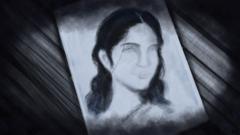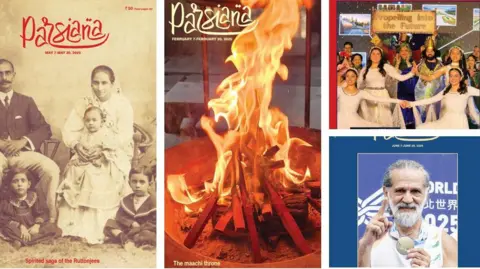In the 1920s, a young woman in pre-independence India dared to step into an arena where women were seldom seen – the film industry. PK Rosy, the first female lead in Malayalam cinema, starred in the film "Vigathakumaran" (The Lost Child). However, rather than being celebrated for her pioneering role, her story has largely been overshadowed by caste discrimination and societal backlash. As a member of the Pulaya community, classified among the lower castes or Dalits, Rosy faced severe criticism for starring as an upper-caste woman in the film.
Despite the passage of nearly a century, little evidence remains of Rosy's trailblazing role. The original film reel has been lost to time, and most of the cast and crew have passed away. Today, only a contested press release picture and an unverified photo circulate as potential remnants of her legacy. On the occasion of what would have been her 120th birthday, a Google Doodle commemorated her, yet without certainty that the image represented her.
Born Rajamma in the early 1900s in Travancore (now Kerala), Rosy emerged from a family of grass cutters within the Dalit community, historically subjected to harsh oppression. "People from the Pulaya community were enslaved, treated as lower than others," explains Malavika Binny, a professor at Kannur University. Despite these oppressive circumstances, Rosy aspired for more. Supported by her uncle, a theatre artist, she broke into local theatre, eventually attracting the attention of director JC Daniel, who was then casting for "Vigathakumaran."
Her film role was groundbreaking, but it quickly became a source of conflict. attended the film's premiere in 1928, tragedy struck as Rosy and her family were barred from entry due to their caste. Following the movie, a violent backlash ensued, sparked by the controversial scenes featuring Rosy and the male lead. The fallout shattered dreams and livelihoods; director Daniel, left in debt, never directed another film, while Rosy was forced to flee her hometown.
She changed her name to Rajammal and married an upper-caste man, living her remaining years in obscurity. The separation from her roots was profound; her children distanced themselves from her Dalit heritage, reflecting on a painful reality shaped by caste.
In recent years, an effort to reclaim Rosy's legacy has emerged from Dalit filmmakers who are now vocalizing her story. Influential Tamil director Pa Ranjith instituted a film festival in her honor, aimed at celebrating Dalit cinema, and organizations are advocating for her rightful recognition. Yet, even as interest in Rosy's legacy revives, the haunting absence of her voice remains. She chose survival over her passion, a decision reflecting broader societal constraints.
As Rosy's story unfolds, it challenges the entrenched narratives around caste and creativity and ignites discussions about identity and resilience within marginalized communities. Her legacy, once buried, now emerges not just as a tale of erasure but as a beacon of hope for reclaiming lost identities in a changing landscape.




















